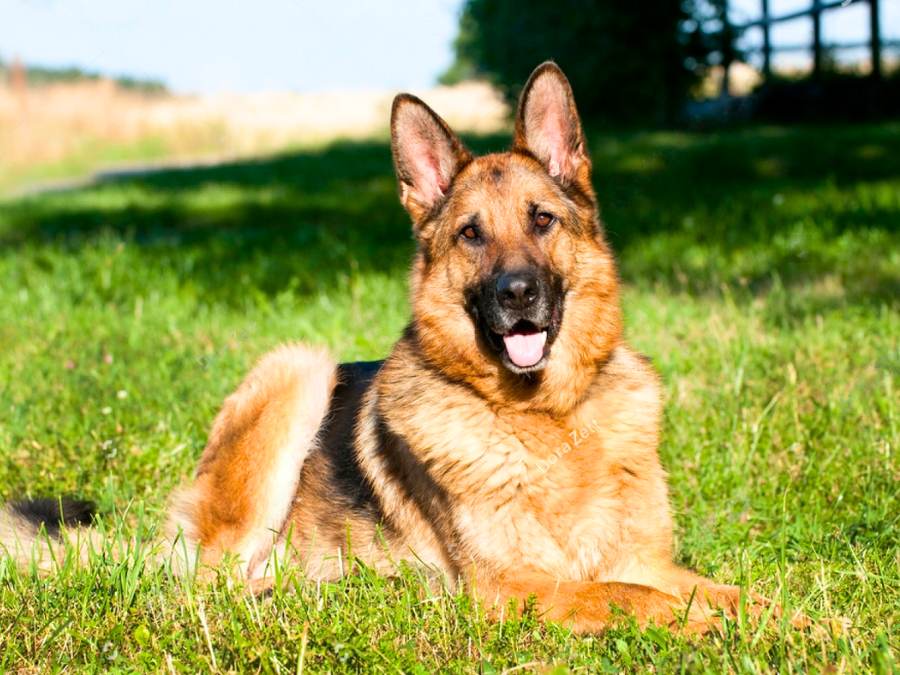Despite their many admirable qualities, potential owners often wonder if German Shepherds are high maintenance. The term “high maintenance” can encompass a variety of needs, including physical care, mental stimulation, and emotional support.
This blog post aims to explore these aspects in detail, providing a comprehensive overview of what potential and current German Shepherd owners can expect.
From their grooming needs and exercise requirements to their healthcare and overall well-being, we’ll delve into what it truly means to care for a German Shepherd and whether they are considered a high-maintenance breed.
So let’s dive in!
Physical Maintenance Needs
Caring for a German Shepherd involves a multifaceted approach that caters to their physical well-being.
Grooming and Shedding
German Shepherds are known for their dense double coat, which consists of a soft undercoat and a harsher outer coat.
This double-layer needs regular grooming to maintain their coat’s health and manage shedding.
Shedding occurs year-round for German Shepherds, with two major blowouts during spring and fall as they prepare for the changing seasons.
To manage shedding, it’s recommended to brush your German Shepherd at least 2-3 times a week with a de-shedding tool or a slicker brush.
Regular grooming sessions should also include checking and cleaning their ears to prevent infections, trimming their nails to avoid discomfort and potential injury, and brushing their teeth several times a week to promote dental health.

Exercise Requirements
German Shepherds are high-energy dogs that require plenty of exercise to maintain their physical and mental health.
A lack of adequate physical activity can lead to behavioral problems such as excessive barking, chewing, and digging.
Ideally, a German Shepherd should get at least one to two hours of exercise daily.
This can include walks, runs, hikes, and play sessions in a securely fenced area. In addition to these activities,
German Shepherds thrive on tasks that challenge them mentally and physically, such as agility training, obedience work, and fetch games that require them to think and move.
Exercise routines should be adjusted according to the dog’s age, health status, and energy level. Puppies and senior dogs may have different exercise needs compared to adult dogs in their prime.
RELATED: How Much Exercise Does a German Shepherd Need?
Diet and Nutrition
Feeding your German Shepherd a balanced diet is essential for their overall health and well-being.
German Shepherds do well on high-quality commercial dog food or a properly balanced homemade diet, under the guidance of a veterinarian.
The diet should be rich in proteins to support muscle growth and maintenance, with the right balance of fats, carbohydrates, vitamins, and minerals to meet all their nutritional needs.
The amount of food required depends on the dog’s age, size, and activity level. Generally, adult German Shepherds should be fed twice a day to prevent bloating, a serious health risk for large breeds.
Always ensure fresh water is available, and be mindful of treats and extra servings, as German Shepherds can be prone to obesity.

Mental and Emotional Needs
German Shepherd’s mental and emotional needs are profound, necessitating engagement, companionship, and challenges that keep their minds sharp and spirits high.
Understanding and fulfilling these needs are crucial for a harmonious and healthy life together.
Training and Socialization
Due to their intelligence and eagerness to learn, German Shepherds excel in training sessions that challenge them mentally.
Training should begin early, with puppy classes focusing on basic commands, and evolve into more advanced training and socialization as they grow.
Socialization is equally important, introducing your German Shepherd to a variety of people, animals, environments, and situations from a young age.
Proper socialization helps prevent the development of fear-based behaviors and aggression, ensuring your German Shepherd becomes a confident and well-adjusted adult.
This includes exposure to different sounds, textures, and experiences, fostering adaptability and ease in various situations.
Mental Stimulation Needs
German Shepherds need regular mental stimulation to prevent boredom and destructive behaviors. This can be provided through interactive toys, puzzle feeders, and regular training sessions.
Activities that require them to think and solve problems are particularly beneficial, such as hide-and-seek games, obstacle courses, and training that teaches new tricks and commands.
Without sufficient mental stimulation, German Shepherds can become restless and engage in unwanted behaviors.
Signs of Neglecting Mental and Emotional Needs
Neglecting the mental and emotional needs of a German Shepherd can lead to several behavioral problems.
Signs that your German Shepherd may not be receiving adequate mental and emotional stimulation include excessive barking, digging, chewing on inappropriate objects, and general restlessness.
Additionally, a lack of socialization can result in fearfulness, aggression towards strangers or other animals, and difficulty adjusting to new environments or situations.
It’s important to address these needs proactively to prevent such issues from arising. Regular interaction, affection, and ensuring your German Shepherd feels like a valued member of the family are essential.

Healthcare and Wellness
German Shepherds, like any other breed of dogs, are susceptible to certain health conditions that require attention and preventative care.
By staying informed and proactive, owners can ensure their German Shepherds lead long, healthy lives.
Common Health Issues in German Shepherds
German Shepherds are prone to a range of genetic and lifestyle-related health issues.
Some of the most common GSD health conditions include hip and elbow dysplasia, a genetic malformation of the hip or elbow joint that can lead to arthritis or lameness.
Degenerative myelopathy, a progressive disease of the spinal cord, and gastric dilatation-volvulus (GDV), also known as bloat, are other concerns for German Shepherd owners.
Regular monitoring and prompt veterinary care can help manage these conditions.
Additionally, German Shepherds can suffer from allergies, which manifest in skin irritations or gastrointestinal issues, requiring dietary adjustments or medication.
Regular Veterinary Care
Regular check-ups allow for early detection and treatment of potential health issues. Vaccinations, parasite control (fleas, ticks, and worms), and routine health screenings are essential components of preventative care.
Discussing your dog’s lifestyle with your vet can also lead to personalized advice on nutrition, exercise, and mental health, ensuring a holistic approach to their well-being.
Spaying or neutering your German Shepherd is another important aspect of their healthcare, offering benefits such as reduced risk of certain cancers and behavioral improvements.
Your veterinarian can advise on the best timing for these procedures, considering your dog’s health and lifestyle.

Costs Associated with Owning a German Shepherd
Owning a German Shepherd, like any pet, is a significant financial commitment. Understanding the costs involved can help potential owners prepare for the responsibilities that come with bringing one of these loyal and intelligent dogs into their homes.
Here’s a breakdown of the primary expenses:
Initial Costs
- Purchase Price: Depending on the breeder and the dog’s lineage, the purchase price can vary significantly, ranging from $500-$3000.
- Initial veterinary care: This includes vaccinations, microchipping, and spaying/neutering. Initial vet visits can cost between $200 and $500.
Ongoing Costs
- Food: German Shepherds are large dogs with substantial dietary needs. High-quality dog food is essential for their health and vitality, potentially costing $60 to $100 per month.
- Grooming: While they don’t require professional grooming as frequently as some breeds, the cost of grooming supplies or professional services to manage shedding and coat health can add up to $30-$100 per visit or purchase.
- Health care: Routine vet check-ups, flea/tick prevention, and vaccinations can average $200-$300 per year. However, be prepared for potential health issues like hip dysplasia, which can lead to significant medical bills.
- Training: Professional training is highly recommended for German Shepherds, especially for socialization and obedience. Group classes range from $50 to $125 per session, while private sessions can be significantly more.
- Pet insurance: To mitigate unexpected veterinary expenses, pet insurance can be a wise investment, typically ranging from $30 to $50 per month.
Additional Costs
- Accessories and supplies: Beds, leashes, collars, toys, and feeding supplies can add an initial cost of $100-$200.
- Emergency medical expenses: It’s crucial to have a financial cushion for unforeseen health emergencies, which can easily escalate into thousands of dollars.
Total Annual Cost
Considering all these expenses, the total annual cost of owning a German Shepherd can range from $1,500 to over $3,000, excluding any unforeseen medical expenses or initial costs.
It’s important for potential owners to realistically assess their financial ability to care for a German Shepherd properly.
RELATED: German Shepherd Price: The Total Cost Of Buying & Maintaining a GSD

Pros and Cons of Owning a German Shepherd
Owning a German Shepherd comes with a unique set of advantages and challenges.
Here’s a balanced view of what to expect:
Pros of Owning a German Shepherd
- Loyalty and protection: German Shepherds are extremely loyal to their families and excellent protectors.
- Intelligence: They are highly intelligent, making them easy to train for various tasks and obedience.
- Versatility: This breed excels in many roles, including service dogs, search and rescue, and working with law enforcement.
- Active lifestyle: Perfect companion for individuals or families leading an active lifestyle, as they require and enjoy regular exercise.
- Companionship: German Shepherds form deep bonds with their owners, offering great companionship.
- Good with children: With proper training and socialization, they can be good with children, showing patience and gentleness.
- Strong work ethic: They have a natural drive to work and excel in tasks given to them, making them great for training and competitions.
- Health: With proper care, they can be a relatively healthy breed, living up to 9-13 years.
- Appearance: They have a noble and striking appearance, with a variety of coat colors.
- Adaptability: They can adapt to various living environments, provided they have enough space to move and exercise.
Cons of Owning a German Shepherd
- High maintenance: Requires regular grooming due to shedding, as well as significant exercise to manage their energy levels.
- Potential for health issues: Prone to specific health issues like hip dysplasia, which can be costly to treat.
- Need for constant training and socialization: To prevent aggression and ensure they are well-behaved, ongoing training and socialization are crucial.
- Separation anxiety: They can develop separation anxiety if left alone for long periods, requiring a commitment to spend ample time with them.
- Dietary needs: A high-quality diet is needed to maintain health, which can be expensive.
- Size: Their large size can be a challenge in smaller living spaces.
- Strong prey drive: Can sometimes be a challenge with other pets or small animals.
- Insurance and housing restrictions: Some insurance companies and housing associations may have restrictions against owning German Shepherds.
- Requires a confident owner: German Shepherds do best with owners who are experienced and confident in training and handling dogs.
- Legal liabilities: Due to their protective nature, there could be legal liabilities if they were to bite or attack someone, even if they are protecting their home or owner.
RELATED: German Shepherd Pros and Cons: Is Owning One Right for You?
Final Remarks
In conclusion, German Shepherds can indeed be considered high maintenance, but for many, the joys and rewards of sharing their lives with such a loyal, intelligent, and capable companion far outweigh the challenges.
If you’re considering adding a German Shepherd to your life, reflect on your ability to provide the necessary care and commitment. With the right preparation and mindset, owning a German Shepherd can be one of the most rewarding experiences, offering a unique bond that lasts a lifetime.




